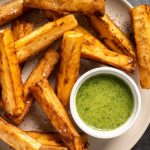The Butteriest Bundt Cake of Them All
Prep: 15 mins
Cook: 60 mins
Total: 75 mins
Servings: 12 servings
This is not your average bundt cake. A Pillsbury Bake-Off winner from 1963, Kentucky butter cake may be the most tender and moist of all bundt cakes. The reason? Vanilla-infused melted butter is poured over the cake while it’s still warm, soaking into every nook and cranny. The resulting cake is buttery and sweet with a golden, sugary crust.
Another thing to love about this cake: The ingredients for the batter are mixed together all at once. No need to cream the butter and sugar first, or add the dry ingredients alternating with the milk. It’s as easy as using a cake mix. And the butter-sugar sauce is a snap to prepare—it just involves heating the ingredients until the butter has melted.
Bake this cake for a special event or party or take it along to a potluck dinner—everyone will be impressed. Oh, and take a few copies of the recipe to share.
Tips for Making a Super Tender Kentucky Butter Cake
- As with most cake batters, it’s important not to overmix!
- Be sure to thoroughly grease your bundt pan for a smooth and easy release. Nonstick spray isn’t always reliable, so we prefer the butter and flour method (butter the pan and then sprinkle with a coating of flour)
- Forget to pick up buttermilk? Try one of these helpful substitutes.
- This classic Southern cake really doesn’t need icing, but you can sift some powdered sugar over the top after you unmold it for a nice presentation.
How Do You Keep a Bundt Cake Moist?
It's quite simple: Don't overbake it! As soon as a cake tester or toothpick comes out clean when inserted in the center of the pan, the cake is done. To add a little extra moisture, you can brush on a drizzle or glaze (as this recipe does) that will soak into the cake or top with a gooey icing.
How Long Do You Let a Bundt Cake Cool
Most bundt cakes will need to cool for a few minutes in the pan before being turned out onto a cooling rack. Depending on the temperature of your kitchen, it can take an hour or longer for the cake to completely cool once removed from the mold.
How Do You Get Bundt Cake Out of the Pan?
Make sure your bundt pan is well greased (and floured), getting into all of the nooks and crannies. Some recipes recommend letting the cake cool entirely in the pan, while others advise you to turn the cake out of the pan while still warm; be sure to follow the recipe. If the cake won't release, run a thin silicone spatula in between the pan and the cake at sticking points; metal utensils will scratch the surface of the bundt pan.
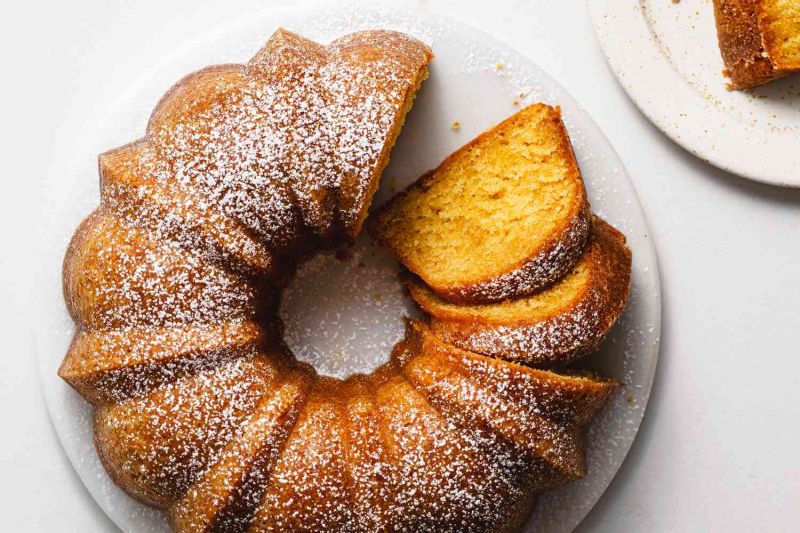
“This cake is easy, stunning, and would definitely be a crowd pleaser. Although it is really sweet, I think a slice of this with some fresh berries would be perfect for any celebration. If you really want to go for the taste of Kentucky, add some bourbon for a special treat.” —Tracy Wilk
A Note From Our Recipe Tester
Ingredients
For the Bundt Cake:
-
3 cups (or 13 1/2 ounces by weight) all-purpose flour
-
2 cups granulated sugar
-
1 cup unsalted butter, room temperature
-
1 cup buttermilk
-
4 large eggs
-
2 teaspoons vanilla
-
1 teaspoon salt
-
1 teaspoon baking powder
-
1/2 teaspoon baking soda
For the Glaze:
-
3/4 cup granulated sugar
-
1/3 cup unsalted butter
-
3 tablespoons water
-
2 teaspoons pure vanilla extract
Steps to Make It
Make the Cake
-
Gather the cake ingredients.
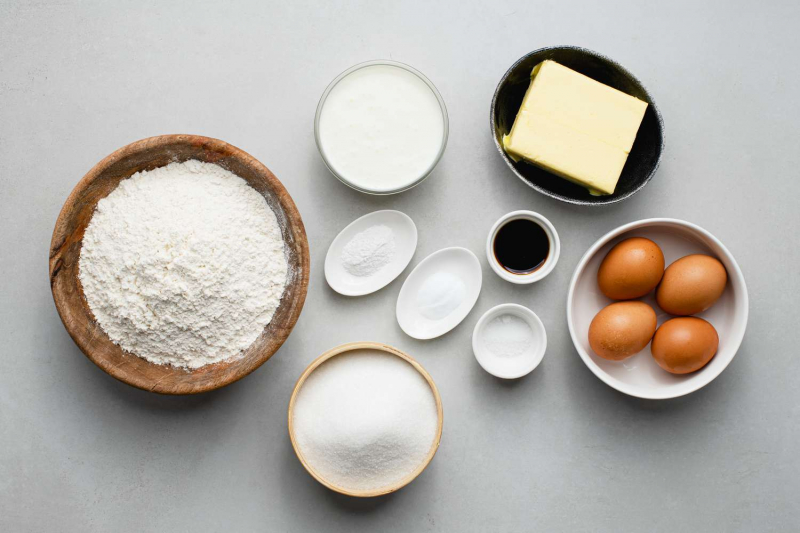
-
Preheat the oven to 325 F. Generously grease and flour a 12-cup bundt pan or 10-inch tube pan. Make sure you get all the nooks and crannies of the bundt pan.
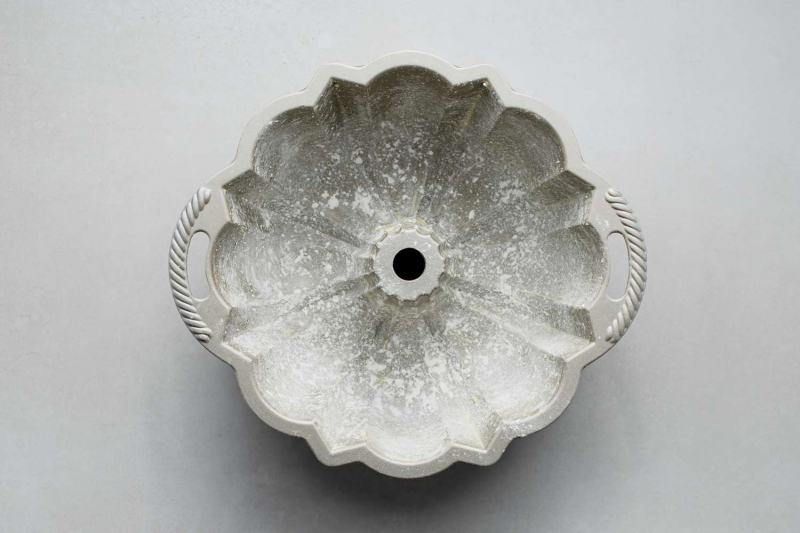
-
In a large bowl or the bowl of a stand mixer fitted with a paddle attachment, combine the flour, sugar, softened butter, buttermilk, eggs, vanilla, salt, baking powder, and baking soda. Beat on low speed until moistened. Increase the mixer speed to medium and beat for about 3 minutes longer.
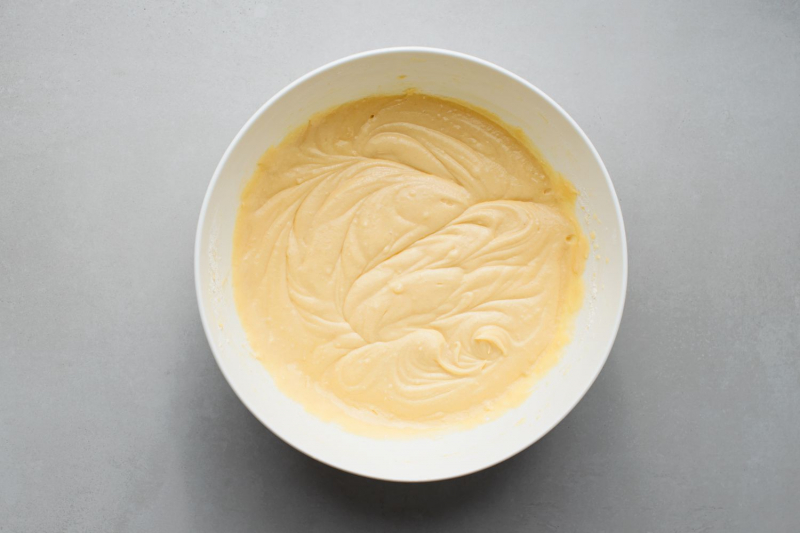
-
Spoon the batter into the prepared cake pan and spread evenly.
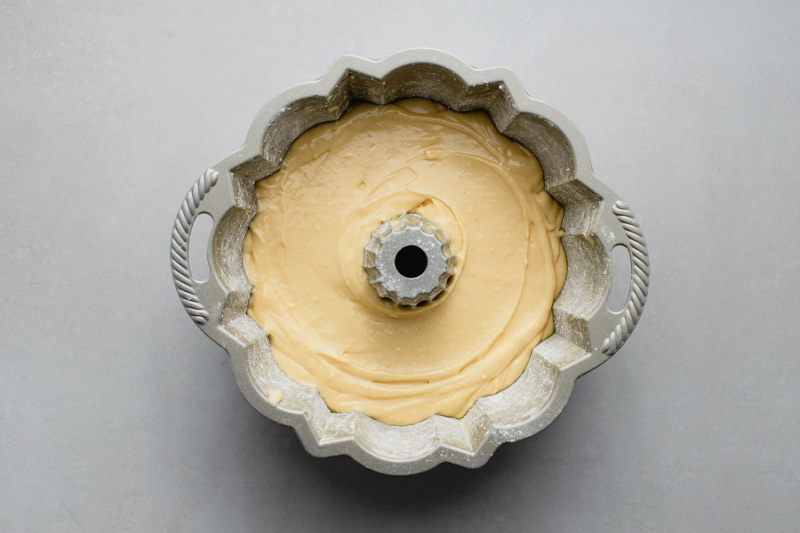
-
Bake the cake in the preheated oven for 55 to 65 minutes, or until a toothpick inserted into the center comes out clean.
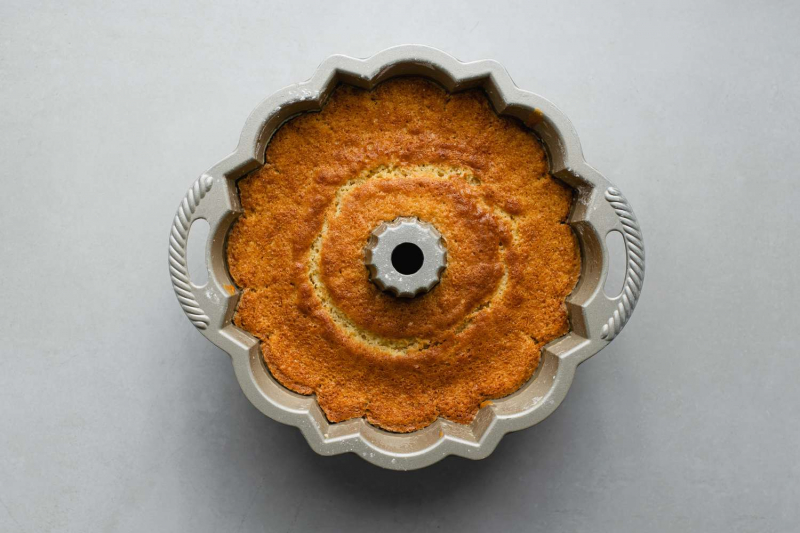
Make the Glaze
-
Meanwhile, gather the glaze ingredients.
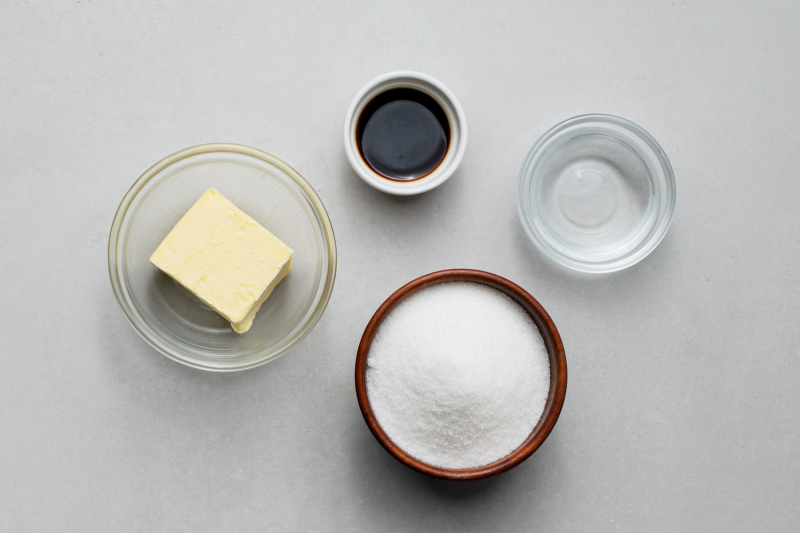
-
In a small saucepan over low heat, combine the sugar, butter, water, and vanilla. Cook, stirring, just until the butter melts. Do not bring the mixture to a boil.
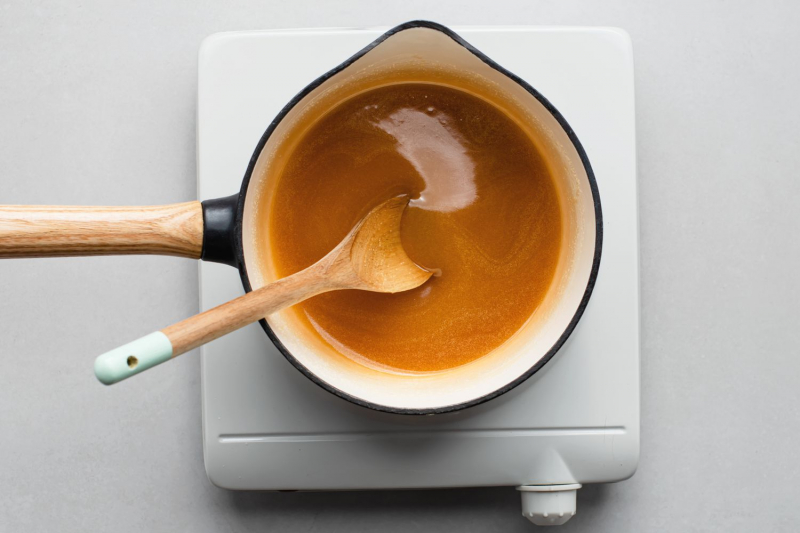
Finish the Cake
-
Once the cake has finished baking, move it to a rack and leave it in the pan. Pierce it all over with a fork or skewer.
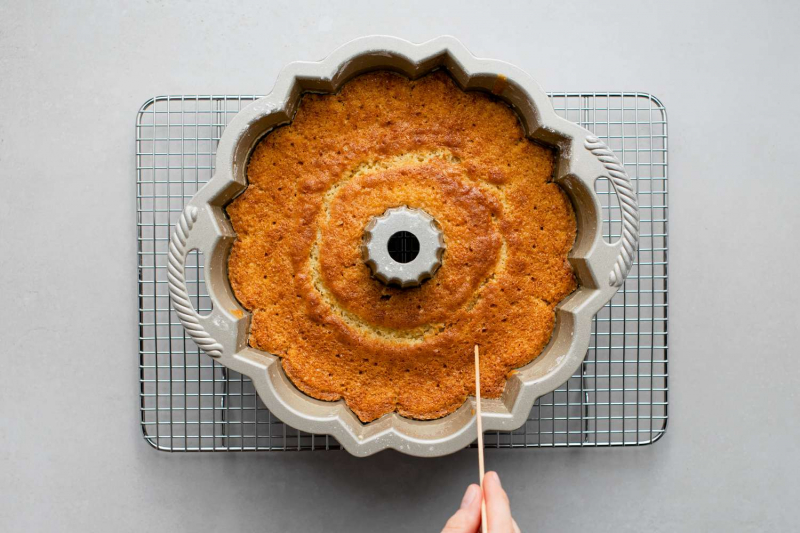
-
Pour the hot butter glaze over the warm cake.
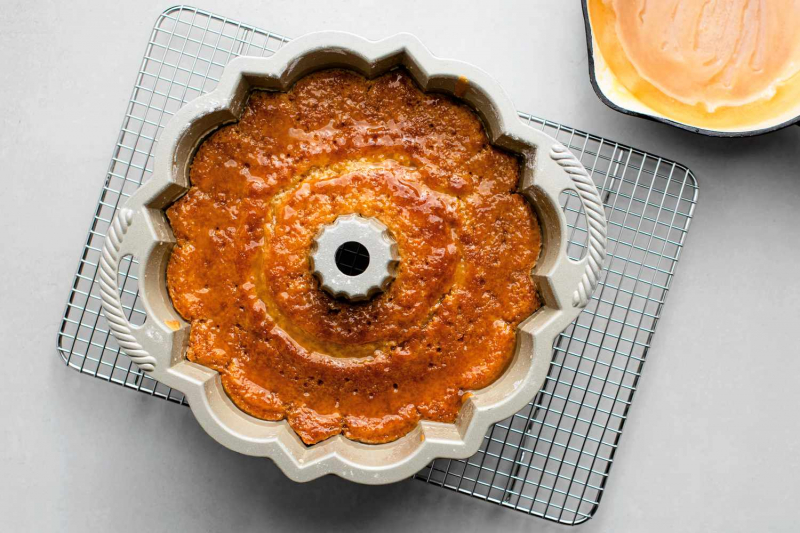
-
Let the cake stand 5 to 10 minutes, or until the glaze is absorbed.
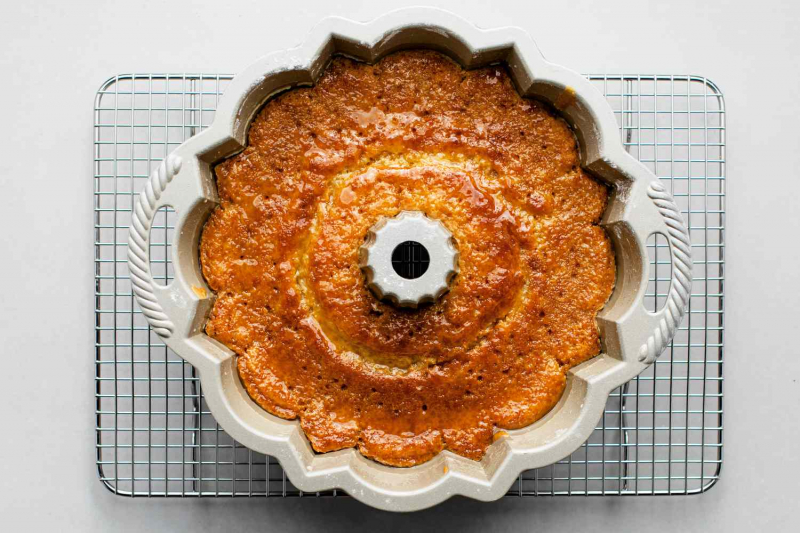
-
Carefully turn it out onto a cake plate. Cool and serve, sprinkled with confectioner's sugar if desired. Enjoy.
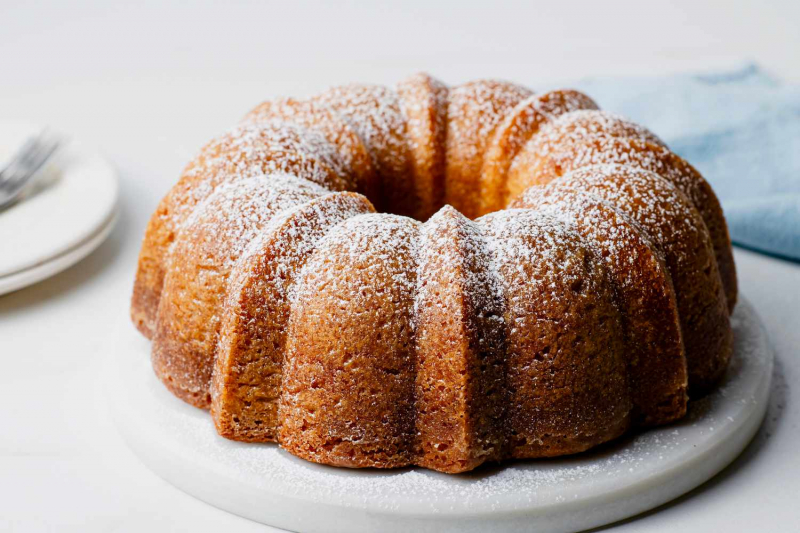
How to Store
Store leftover Kentucky butter cake tightly wrapped at room temperature for up to three days.
Recipe Variations
- You can swap some or all of the water in the glaze for Kentucky bourbon. One tablespoon will add a hint of flavor, while more will make the cake a bit boozy. Rum also works well.
- This cake is deliciously buttery and sweet all on its own. However, if you’re looking for a little extra flavor and sweetness, you could drizzle a simple vanilla glaze over the cake.
- If you don’t have a Bundt pan or would like to turn this into a layer cake, you can bake the batter in two 9-inch cake pans; adjust the time accordingly.
| Nutrition Facts | |
|---|---|
| Servings: 12 | |
| Amount per serving | |
| Calories | 507 |
| % Daily Value* | |
| Total Fat 22g | 29% |
| Saturated Fat 14g | 68% |
| Cholesterol 117mg | 39% |
| Sodium 495mg | 22% |
| Total Carbohydrate 71g | 26% |
| Dietary Fiber 1g | 3% |
| Total Sugars 47g | |
| Protein 6g | |
| Vitamin C 0mg | 1% |
| Calcium 67mg | 5% |
| Iron 2mg | 10% |
| Potassium 96mg | 2% |
| *The % Daily Value (DV) tells you how much a nutrient in a food serving contributes to a daily diet. 2,000 calories a day is used for general nutrition advice. | |
